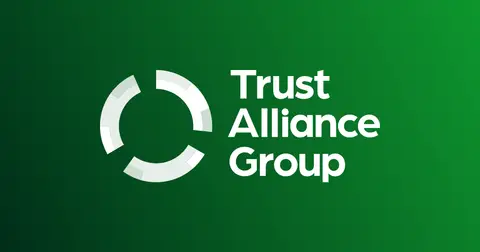Trust Alliance Group conference 2019: The highlights

Our first conference was held in London earlier this week, with a focus on putting consumers at the heart of markets and driving behavioural change within businesses to build consumer trust and confidence.
Our first conference was held in London earlier this week, with a focus on putting consumers at the heart of markets and driving behavioural change within businesses to build consumer trust and confidence.
We heard from speakers on topics including technology and innovation; the importance of data and insight in improving outcomes for consumers; and the importance of getting the basics right when it comes to service delivery.
We also held two panel discussions: ‘Why wait eight weeks to bring a complaint to an ombudsman?’; and ‘How far have we come to address consumer vulnerability?’. Findings from our Consumer Action Monitor (now in its sixth year) were used to help guide discussion around key themes.
The event drew together a community of stakeholders from across a range of sectors including energy, telecoms and parking with senior representation from consumer groups, charities, businesses, regulators, policy makers, behavioural psychologists, innovators and academics.
So, what will we take forward together?
1. Harnessing technology while recognising customer wants and needs
It’s apparent from our Consumer Action Monitor that consumers have high expectations when it comes to the problem-solving abilities of new technology. Martin Boon, director at Deltapoll, shared that 88% of people think new technology should make complaining easier, while 63% believe that complaints on social media should get better, quicker outcomes.
While this is a clear indication that businesses can benefit from using technology to better handle complaints, Martin was keen to stress the finding that 60% believe the traditional ‘human touch’ complaints process will continue.
Chris Reed, professor of computer science and technology at the University of Dundee, was also quick to warn of the limitations of technology in customer service and complaint handling. Chris spoke to delegates about how technology and artificial intelligence are helping businesses become more efficient and making processes faster and fairer.
However, when asked his thoughts on the use of chatbots, Chris recognised the positive role they can play but also that chatbots cannot understand and respond to all human nuances; artificial intelligence will not and should not look to replace people where human perspective adds value.
2. The need for speed and the trust paradigm
One clear takeaway from the conference is that the complaints landscape is evolving – technology is changing the game and customers expect fast results. The eight-week rule debate raised some interesting points around the importance of early recognition of complaints and appropriate speed of redress more generally.
Panelists were challenged on the stumbling blocks to faster redress and, while coming from different perspectives, all agreed that an approach needs to be collaborative and consistent and that this starts with better access to redress.
Trust was another key theme explored. Next Big Thing founder Will Higham spoke about the transition from vertical trust (trust in businesses, government etc) to horizontal trust (the influence of social media) and the importance of integrity, inclusion and community for today’s consumer.
These feelings were echoed by our chief executive Matt Vickers in his concluding remarks, with a call for our conference attendees to work together as a community to drive forward positive change centred around customer needs and wants.
As Diane Evans from Customer Whisperers warned during her practical-led session:
format_quoteDiane Evans from Customer Whisperers"Customer promises are made explicitly and implicitly through branding, marketing, business values etc. They’re easy to make and even easier to break … break your promises to customers and you break your relationship."
3. Consumer vulnerability must be better recognised and consistency is key
Our consumer vulnerability panelists debated how we can better protect and support consumers in vulnerable circumstances. It was discussed that there are difficulties around recognising vulnerability as it can be a transient state / condition, plus it was acknowledged that there's an issue with the term ‘vulnerability’ as consumers don't always recognise their situation in this way or wish to be labelled as such.
Panelists agreed that companies should take a proactive approach to recognising and supporting consumers where needed, for example by looking for triggers (e.g., a missed payment) and addressing the situation appropriately from there.
Another important point made by the panel was that it’s important to consider the needs of all consumers when introducing new processes and technology; not everyone is online, and consumers shouldn’t be forced into a mould.
As Matt Vaughan-Wilson of Money Advice Trust succinctly put it:
format_quoteMatt Vaughan-Wilson of Money Advice Trust"Innovation shouldn’t be about taking stuff away."
Thank you
We would like to thank all of our guest speakers and panelists:
- Declan Curry, journalist and presenter
- Martin Boon, Deltapoll
- Katie Morley, The Daily Telegraph
- Kirsty Good, MoneySavingExpert.com
- Dr Paul Marsden, Digital Wellbeing
- Audrey Gallacher, Energy UK
- Clare Vicary, Financial Conduct Authority (FCA);
- Chris Reed, University of Dundee;
- Will Higham, Next Big Thing;
- Diane Evans, Customer Whisperers;
- Jo Giles, Cadent Gas;
- Paul Edwards, Dementia UK;
- Naomi Willis, Skint Dad; and
- Matt Vaughan Wilson, Money Advice Trust.
We would also like to thank all of our attendees for their valued contributions.
More articles

Energy Ombudsman attends NEA Annual Conference and Exhibition 2026

Warning: Scam emails claiming to be from Energy Ombudsman

Ofgem confirms regulation for Heat Networks

Energy Ombudsman confirmed as ADR for flexibility service providers
Ready to raise your dispute with us?